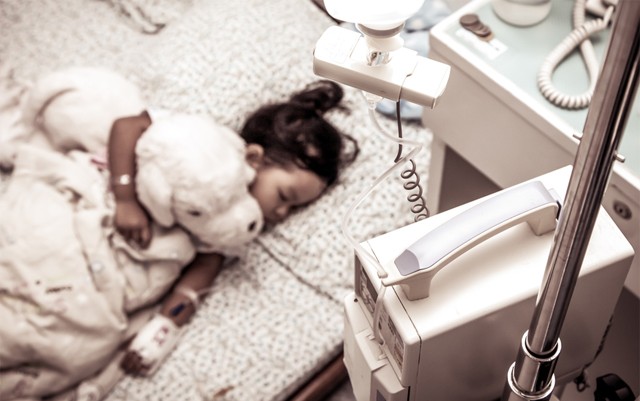The use of medical marijuana for children is still a touchy subject for a number of people – even after all the success stories of children treated with some form of the plant. One of the most common conditions for which medical marijuana is recommended is cancer – since most cancers are treated with chemotherapy, which can leave patients nauseous, without an appetite and feeling weak and in pain.
This is where medical marijuana comes in – and for adults it may be a no-brainer, but some people would have you believe that it could be too dangerous for children, even if it may ease their suffering and improve their current quality of life. While there are still those who oppose allowing children access to medical marijuana, support from those working in the medical industry seems to be growing.
At the 2016 annual American Society of Clinical Oncology meeting a survey was sent out to a total of 654 healthcare workers – 301 responded: 59% were nurses, 29% were physicians and 10% were physician-extenders. Out of those 301 who answered the survey, a whopping 92% said that they were willing to support pediatric cancer patients having access medical marijuana.
The survey also found 88% who thought that medical marijuana was appropriate for use when they are nearing the end of life – and while it is a much smaller percentage, 34% prefer to use medical marijuana for early-stage treatment. When it came to substance abuse, 62% of providers did not believe it was a concern.
Other questions included whether or not providers had been asked about medical marijuana by patients or families in the previous month – around a third of doctors said “yes” and around 14% continued to help patients get access.
The most surprising thing: only 86% of providers knew that medical marijuana was legalized in their state. An even fewer 58% knew the specific regulations put in place surrounding access for patients, possession and cultivation. There is a definite need for healthcare providers to be at least aware of the laws surrounding medical marijuana in their state – even if they don’t recommend it for treating their patients.
“Awareness of state and federal regulations can be improved, and clinical trials are needed to better understand the benefits and side effects of medical marijuana in children with cancer,” Ananth said.
Seeing over 90% of oncologists who replied to the survey willing to allow and even facilitate medical marijuana access for children is extremely encouraging. However, it is a little discouraging to see that there is still a large number of healthcare providers who either do not know whether or not medical marijuana is legal in their state or don’t know the regulations surrounding the industry – something they should be up to speed on should one of their patients ask them about it. Overall, this survey shows that there is a lot of growth in the medical industry when it comes to the use of medical marijuana.






